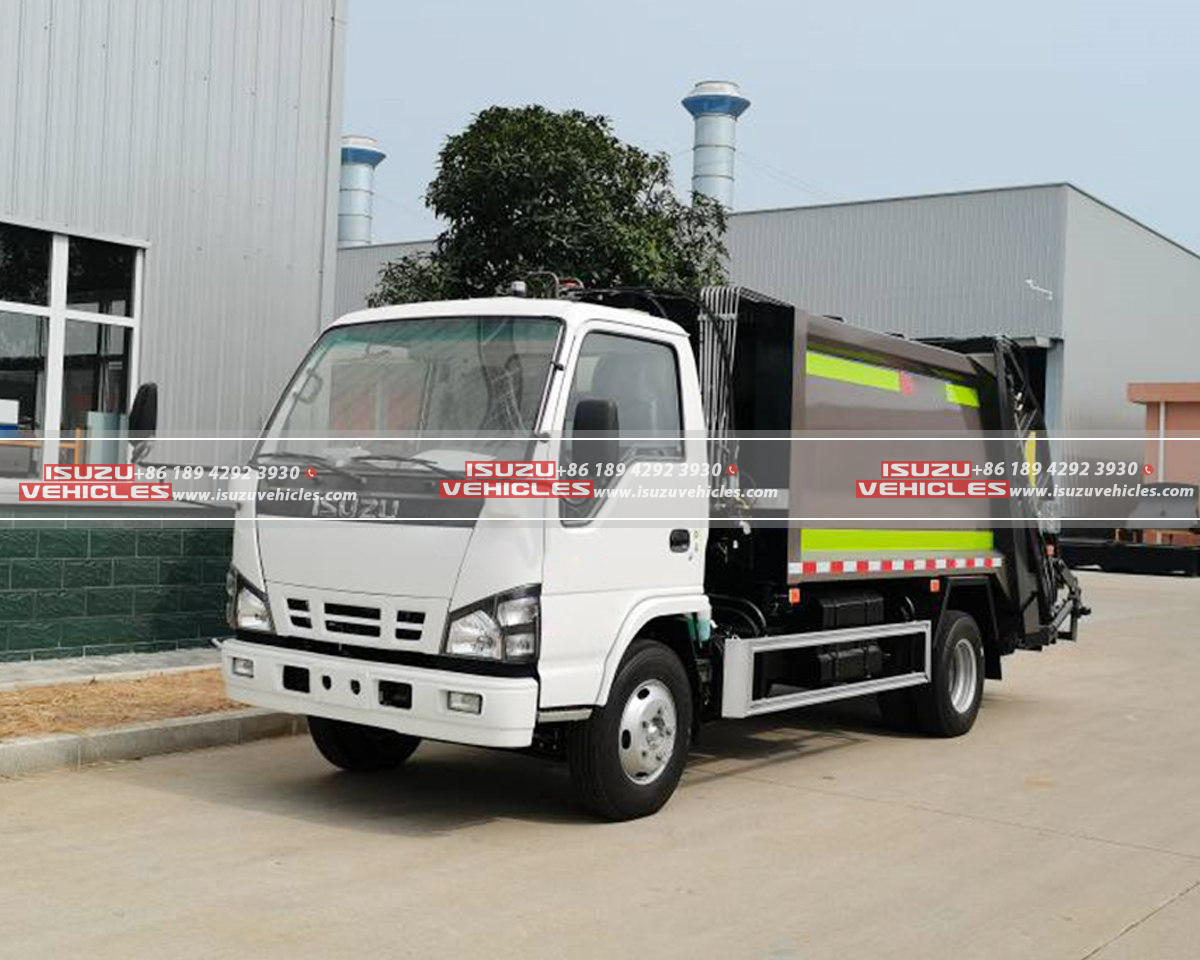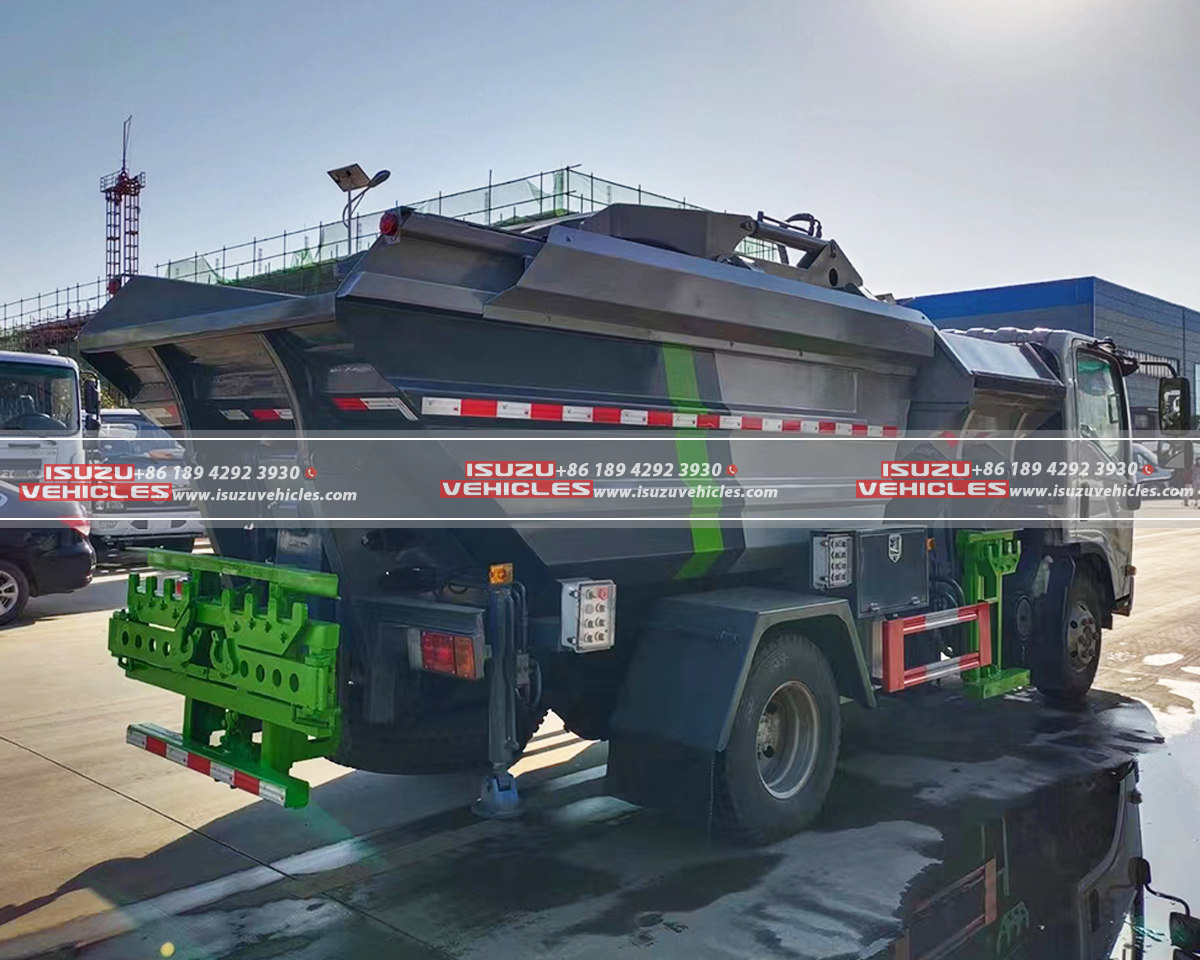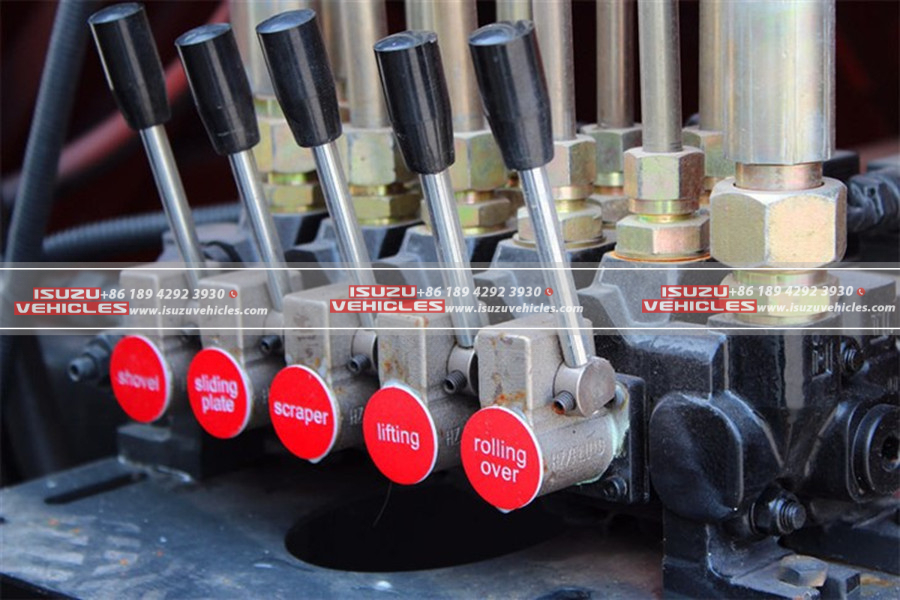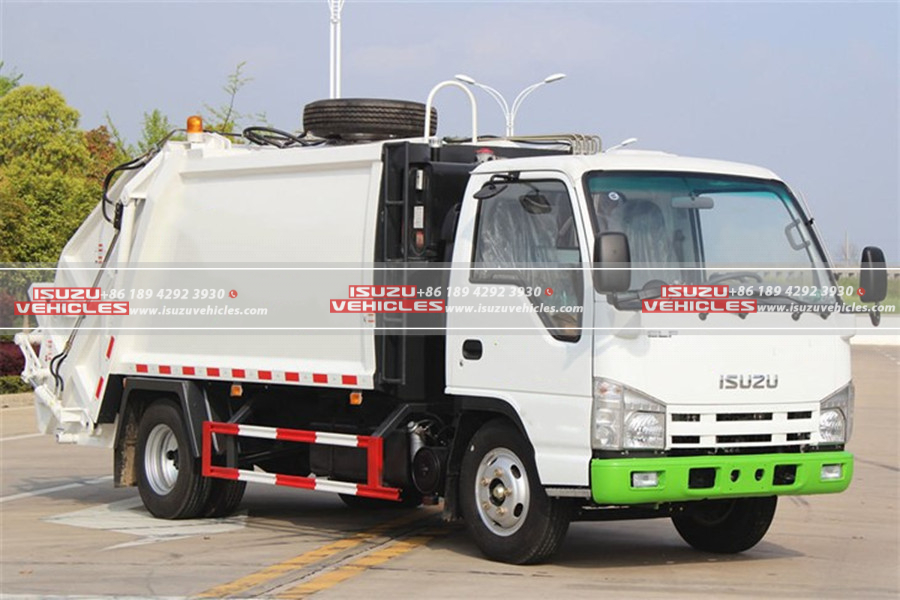Section 1: Tackling Mexico’s Waste Management Crisis

Mexico, like many rapidly urbanizing countries, faces a significant waste management challenge that affects its cities, towns, and rural areas alike. The combination of a growing population, increasing consumerism, and inadequate infrastructure has led to an overwhelming surge in municipal solid waste. Cities like Mexico City, Guadalajara, and Monterrey generate thousands of tons of garbage daily, creating logistical and environmental burdens that strain local governments. Traditional waste collection methods have proven insufficient, with inefficient routing, outdated vehicles, and lack of resources leading to the accumulation of uncollected trash, illegal dumping, and landfills nearing capacity.
The need for a modernized waste management approach has never been more pressing. This is where ISUZU’s innovative line of garbage trucks enters the picture, providing technological solutions that aim to transform Mexico’s waste collection systems. Designed for durability, efficiency, and environmental sustainability, ISUZU’s trucks are set to address these critical issues by improving the way waste is collected, transported, and managed across the country.
Section 2: Advanced Technology for Modern Garbage Collection

ISUZU’s garbage trucks are equipped with advanced technology that optimizes both waste collection and operational efficiency. Unlike traditional trucks, which often suffer from mechanical breakdowns and excessive fuel consumption, ISUZU’s vehicles are engineered to withstand the heavy demands of urban waste collection. These trucks come with powerful compacting systems, allowing for more garbage to be collected per trip, reducing the number of journeys needed to dispose of waste. This feature alone has a profound impact on fuel efficiency, route planning, and overall productivity.
In addition, ISUZU garbage trucks integrate GPS tracking systems and telematics, enabling real-time monitoring of the fleet. This technology allows for precise route planning, minimizing unnecessary travel and ensuring that waste is collected from high-need areas without delay. With GPS integration, waste management teams can easily track each truck’s position, optimize collection schedules, and respond swiftly to overflow situations. The combination of compacting capabilities and real-time tracking systems positions ISUZU’s trucks as a key asset in transforming how waste is managed in Mexico’s urban environments.
Reducing Environmental Impact with Low-Emission Engines
One of the most significant advantages of ISUZU’s garbage trucks is their low-emission engines, which align with global efforts to reduce the environmental footprint of waste management operations. In a country where air pollution remains a major concern, particularly in densely populated cities, these trucks help mitigate emissions by complying with international environmental standards. Their fuel-efficient engines not only reduce greenhouse gas emissions but also lower operational costs for municipalities, making ISUZU trucks both a sustainable and economically sound choice.
Section 3: Improving Efficiency in Urban Waste Collection
The implementation of ISUZU’s garbage trucks in Mexico brings an immediate improvement in efficiency when it comes to waste collection. These vehicles are specifically designed to handle the complexities of urban environments, including narrow streets, dense populations, and varied waste types. Improved maneuverability and load capacity ensure that the trucks can navigate tight urban spaces without difficulty, while still collecting large volumes of waste. This increased efficiency allows for more frequent and reliable pickups, addressing one of the most critical complaints from Mexican citizens regarding missed or delayed waste collection services.
Additionally, automated lifting systems integrated into ISUZU garbage trucks reduce the physical strain on workers, allowing them to operate more efficiently and safely. This automation not only enhances productivity but also decreases the risk of injury, which has historically been a concern in manual waste collection processes. By automating the lifting and compacting processes, ISUZU’s trucks streamline the entire waste collection process, providing Mexico’s municipalities with a tool that saves time, reduces labor costs, and improves worker safety.
Section 4: Economic Impact on Local Governments

In addition to improving waste collection efficiency, ISUZU garbage trucks provide significant economic benefits to local governments in Mexico. The durability and fuel efficiency of these vehicles reduce maintenance costs and prolong their operational lifespan, allowing municipalities to avoid the high costs of constantly repairing or replacing older, less reliable vehicles. The investment in ISUZU’s modern fleet also reduces the reliance on temporary fixes or inefficient stop-gap solutions, which often drain public funds without delivering long-term results.
Furthermore, the introduction of GPS and telematics systems means that waste management teams can reduce operational expenses by optimizing routes and ensuring that trucks are only deployed when needed. This level of oversight allows for better budget management and helps local governments allocate resources more effectively. In cities where budget constraints are an ongoing challenge, the cost-saving benefits of ISUZU’s garbage trucks cannot be understated. These trucks present an opportunity for Mexico to modernize its waste management infrastructure while simultaneously improving the financial outlook for its cities and municipalities.
Section 5: Social and Environmental Benefits for Mexican Communities
The social and environmental impact of ISUZU garbage trucks on Mexican communities is already becoming evident as these vehicles are rolled out across the country. Cleaner streets, fewer uncollected garbage piles, and reduced illegal dumping are immediate outcomes of improved waste collection systems. These changes directly affect the quality of life for residents, as cleaner urban environments minimize health risks associated with waste accumulation, including the spread of diseases and the contamination of water sources.
Moreover, introducing low-emission trucks contributes to better air quality, particularly in cities where air pollution has been a persistent problem. As Mexico continues its efforts to combat pollution and promote sustainability, ISUZU garbage trucks play a vital role in reducing the environmental toll of waste management operations. The social benefits extend beyond environmental improvements; with cleaner neighborhoods come greater civic pride and an overall enhancement of public health. As communities become more aware of the importance of effective waste management, ISUZU’s trucks are setting the stage for a cultural shift toward greater environmental responsibility.
Final Thoughts
ISUZU garbage trucks are transforming waste management in Mexico by introducing advanced technology, improving efficiency, reducing environmental impact, and delivering economic and social benefits. These trucks represent a crucial step forward for Mexico as it strives to modernize its waste collection systems and create cleaner, healthier, and more sustainable urban environments.
